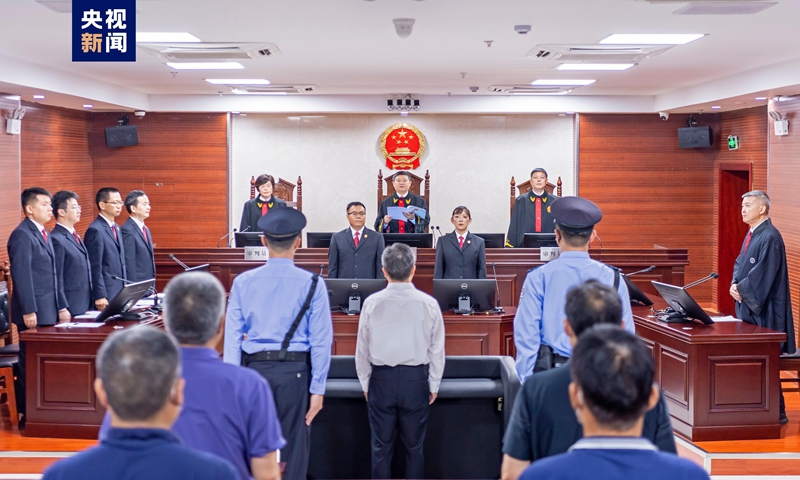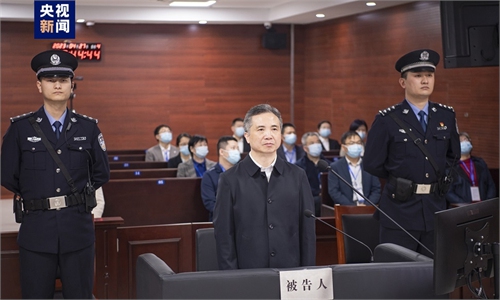Former Party chief of Hangzhou sentenced to death with two-year reprieve for bribery

Zhou Jiangyong, former Party chief of Hangzhou in East China's Zhejiang Province, was sentenced on July 25,2023 to death with a two-year reprieve for bribery.
Zhou Jiangyong, former Party chief of Hangzhou in East China's Zhejiang Province, was sentenced on Tuesday to death with a two-year reprieve for bribery. He was deprived of political rights for life and all his personal property was confiscated, as he illegally accepted more than 182 million yuan ($25.49 million) directly or through his family members.
All proceeds from Zhou's bribery and their respective profits were ordered to be recovered in accordance with the law and handed over to the state treasury, according to the Intermediate People's Court of Chuzhou in East China's Anhui Province.
Upon trial, it was found that from 2001 to 2021, Zhou, using his positions such as deputy county head of Yinzhou County in East China's Zhejiang, county head and Party secretary of Xiangshan, member of the Standing Committee of Ningbo Party Committee, mayor of Zhoushan, member of the Standing Committee of Zhejiang Provincial Party Committee, member of the Standing Committee of Zhejiang Provincial Party Committee, and Secretary of Hangzhou Party Committee, provided assistance to relevant units and individuals in project construction, contract awarding, land acquisition, and case handling. He directly or indirectly received illicit gains amounting to over 182 million yuan.
Zhou was put under both disciplinary and supervisory investigations by the CPC Central Commission for Discipline Inspection (CCDI) and the National Supervisory Commission in August 2021, and was expelled from the Party and public office for violating laws and disciplines in January 2022.
The court held that Zhou Jiangyong's actions constituted the crime of accepting bribes. Zhou's bribery involved an extraordinarily large amount, causing particularly significant losses to the national and public interest, which according to law, should be severely punished.
Considering that Zhou confessed to his crimes after being captured, voluntarily admitted to parts of his bribery crimes unknown to the supervisory authority, expressed regret for his crimes, proactively returned the illicit gains, and all the illicit money and goods have been fully recovered, there were statutory and discretionary mitigating circumstances. The court, therefore, handed down the aforementioned sentence.
On Tuesday, a draft of the criminal law amendment was submitted for review to the fourth session of the Standing Committee of the 14th National People's Congress (NPC), including increased penalties for bribery and the addition of provisions to punish corruption-related crimes committed by internal personnel of private enterprises.
Regarding the increased penalties for bribery, the draft stipulates stricter punishments for six scenarios, including repeated bribery, bribery to multiple persons, and state personnel committing bribery. Simultaneously, it adjusts the starting point and levels of punishment for bribery-related crimes to align with those for accepting bribes.
In practice, there are many cases of corporate bribery, with a significant difference in statutory punishments compared to individual bribery. Some bribers evade punishment by bribing in the name of a company, leading to imbalances in case handling and insufficient punishment. To address this, the draft changes the punishment for corporate bribery from the original single-level punishment of a maximum of five years' imprisonment to a two-level punishment: "imprisonment or detention for up to three years, along with a fine" and "imprisonment for three to 10 years, along with a fine."

